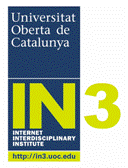Moving for What? International Mobility Strategies of Women in ICT Careers

Abstract
A consideration of the role that international mobility plays in the careers of highly skilled women in ICT is becoming essential. Firstly, international mobility has an effect on the training phase and the subsequent development of women's careers. Secondly, since globalisation shapes the international labour market, this poses new challenges for highly skilled personnel. In fact, the general dynamism of the ICT sector is characterised by a strong internationalisation.
Feminist research has explored the gender dimension of professional mobility. According to this research, the requirement for mobility could be a serious obstacle to the promotion of women if they lack family support. On the other hand, migration research shows that women are taking an increasingly active role in mobility strategies and that they increasingly lead mobility decisions even when the whole family is involved.
In this paper, we focus on women working in the ICT sector with experiences of job related mobility. Using a life course approach, we discuss different aspects of women's mobility strategies. We highlight specific features of women's motivation to move abroad, as well as the consequences of this mobility. We argue that this evidence suggests that it is necessary to review policy agendas related to mobility support for women and their families.
Keywords
International mobility, highly skilled personnel, professional advancement, work-life balance
Author Biography
Ana M. González Ramos
Gender and ICT Programme
Internet Interdisciplinary Institute, IN3 (UOC)
Núria Vergés Bosch
Gender and ICT Programme
Internet Interdisciplinary Institute (UOC)